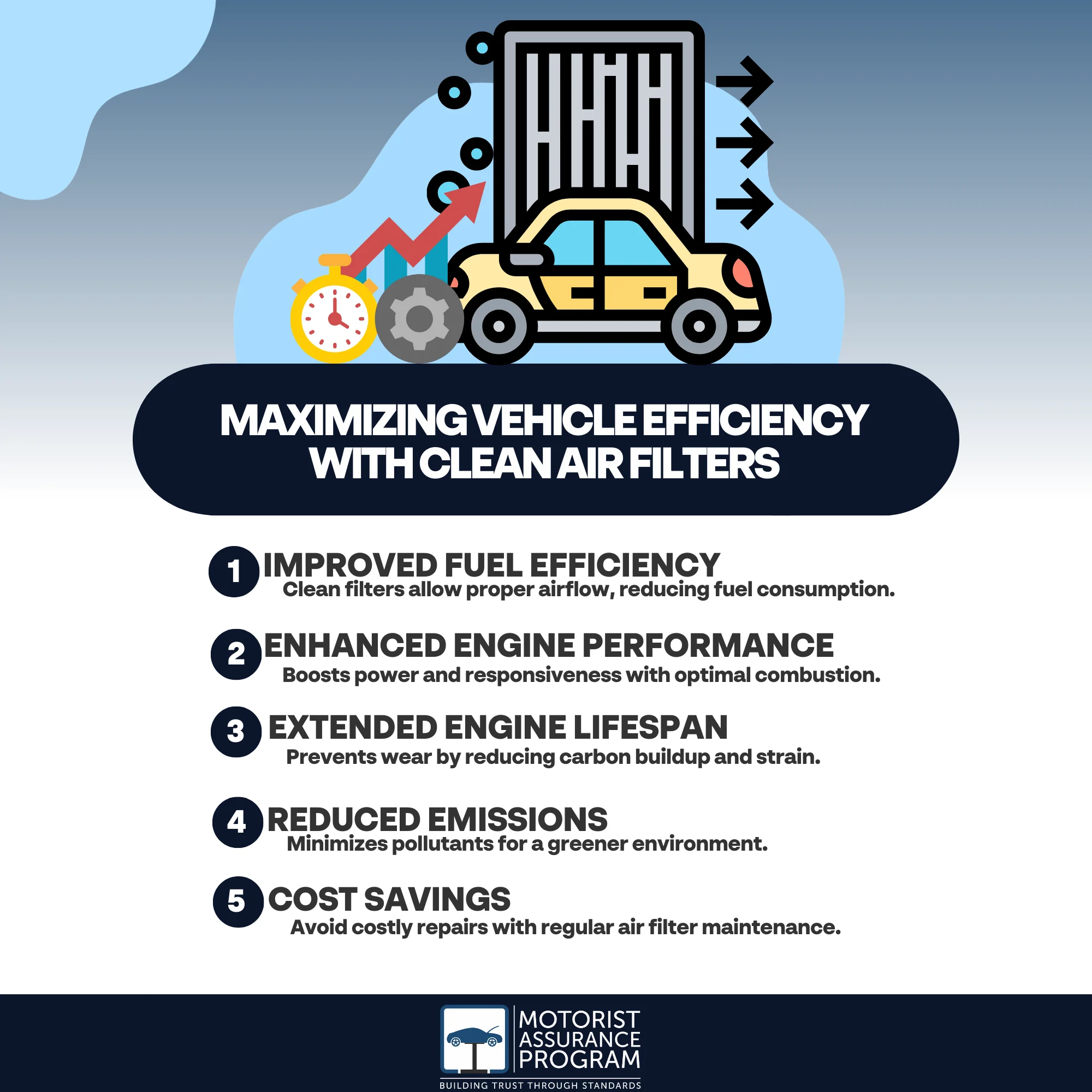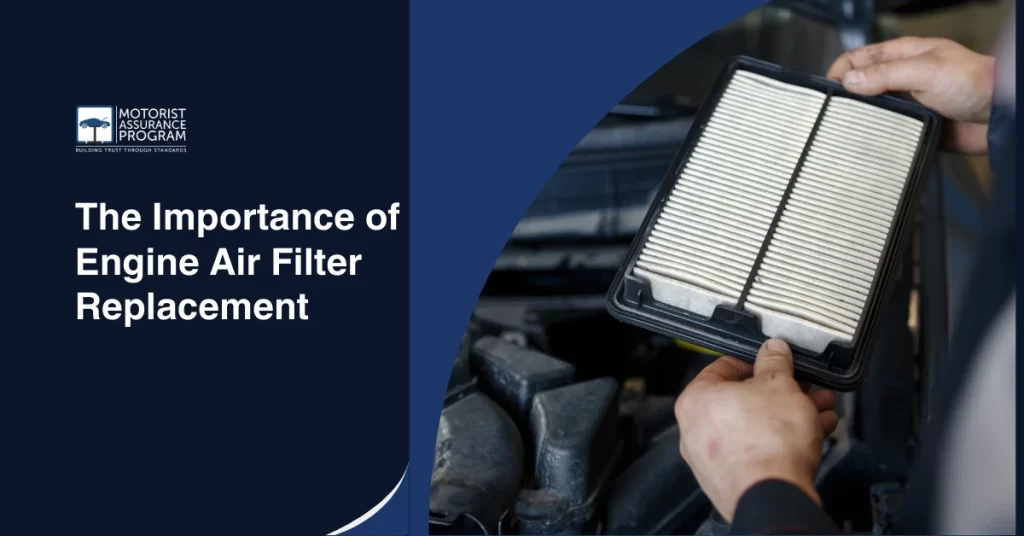Replacing your engine air filter is vital for maximizing fuel efficiency and vehicle performance. A clean filter allows ideal airflow, improving combustion and reducing emissions. When filters clog, they restrict airflow, leading to poorer engine power and increased fuel consumption. Regular replacement every 15,000 to 30,000 miles not only prolongs your engine’s life but also helps prevent costly repairs caused by excessive strain and carbon buildup. Maintaining clean filters also supports environmental sustainability by minimizing pollutants. Staying informed about proper filter maintenance can greatly benefit your vehicle’s health. You might just find more useful insights ahead.

Key Takeaways
- Regular engine air filter replacement boosts fuel efficiency by ensuring optimal airflow and reducing engine workload.
- A clean air filter enhances vehicle performance by maximizing power and improving throttle response.
- Replacing filters prolongs engine life by preventing excessive carbon buildup and wear from restricted airflow.
- Neglecting air filter maintenance can lead to costly repairs due to increased engine strain and potential damage.
- Clean filters reduce harmful emissions, supporting environmental sustainability and promoting better fuel economy.
Increases Fuel Efficiency
One thing many drivers overlook is how a clean engine air filter can greatly boost fuel efficiency. When your engine air filter is clogged with dirt and debris, it restricts airflow to the engine. This leads to a richer fuel mixture, causing your engine to work harder and consume more fuel. By ensuring timely engine air filter replacement, you can maintain ideal airflow, allowing your engine to operate efficiently.
So, how long do engine air filters last? Typically, they should be replaced every 15,000 to 30,000 miles, but this can vary based on driving conditions. If you often drive in dusty environments or stop-and-go traffic, you might need to replace your filter more frequently. Regular checks can help you identify when it’s time for a change.
Investing in a new engine air filter not only improves fuel efficiency but also prolongs engine life. A well-maintained filter supports better combustion, leading to reduced emissions and improved performance.
Don’t neglect this simple yet necessary aspect of vehicle maintenance; a clean air filter is vital for getting the most out of every gallon of fuel.
Optimizes Performance
Maintaining a clean engine air filter plays a crucial role in maximizing your vehicle’s performance. A clogged or dirty filter restricts airflow, which can lead to reduced engine power and responsiveness. When your engine receives insufficient air, it struggles to achieve the perfect air-fuel mixture, resulting in poor combustion efficiency. This inefficiency can negatively impact acceleration and overall drivability.
By adhering to your manufacturer’s recommended engine air filter replacement interval, you guarantee that your engine breathes freely. Regular maintenance prevents buildup that can lead to performance issues. Depending on your driving conditions, the engine air filter replacement frequency may vary; for instance, dusty environments or stop-and-go traffic can necessitate more frequent changes.
Staying proactive about replacement maixmizes performance and improves throttle response and engine smoothness. You’ll notice the difference in how your vehicle accelerates and handles when the engine air filter is in prime condition.
Keep a close eye on your filter and replace it as needed to enjoy a more responsive and efficient driving experience. Investing time in filter maintenance pays off in enhanced performance on the road.
Prolongs Engine Life
Regularly replacing your engine air filter can considerably prolong your engine’s life. A clean air filter guarantees that your engine receives the ideal amount of air, which is vital for efficient combustion.
When the filter is clogged, it restricts airflow, leading to an enriched fuel mixture. This can cause excessive carbon buildup, increasing wear on engine components and potentially shortening its lifespan.
A clean engine air filter not only prolongs your engine’s life but also amplifies fuel efficiency and performance. By maintaining proper airflow, you help your engine run smoothly, reducing strain and minimizing potential issues. Neglecting engine air filter replacement can lead to premature engine wear. Prioritizing this simple maintenance task is a significant step in safeguarding your vehicle’s longevity and reliability.
Prevents Costly Repairs
Neglecting your engine air filter can lead to expensive repairs down the line. A clogged or damaged air filter can restrict airflow to your engine, causing it to work harder and increasing the risk of serious issues. Keeping your air filter clean and replacing it regularly can save you from high repair bills and improve your vehicle’s overall performance.
Here’s how a timely air filter replacement helps prevent costly repairs:
- Improves Fuel Efficiency: A clean filter guarantees ideal air flow, which can enhance fuel economy.
- Reduces Engine Strain: Proper airflow means your engine doesn’t have to compensate for insufficient oxygen, reducing wear and tear.
- Prevents Contaminant Damage: A good air filter keeps dirt and debris from entering your engine, which can cause significant damage.
- Saves Money: An inexpensive engine air filter replacement cost is a small price to pay compared to major repairs.
Reduces Emissions
A clean engine air filter plays an important role in reducing emissions from your vehicle. When air filters are clogged or dirty, the engine struggles to draw in the necessary airflow for peak combustion. This inefficiency leads to incomplete fuel combustion, resulting in increased emissions of harmful pollutants such as carbon monoxide and hydrocarbons.
By regularly replacing your engine air filter, you guarantee your engine operates at maximum efficiency, which helps minimize these harmful emissions. The engine air filter replacement cost is a small price to pay compared to the environmental impacts of poor air quality. Maintaining clean air filters also contributes to better fuel economy, as the engine doesn’t have to work harder to compensate for restricted airflow.
In addition to reducing emissions, a clean air filter optimizes overall engine performance, making sure that your vehicle runs smoothly and efficiently. It’s a simple yet effective way to support environmental sustainability while also maintaining your vehicle’s health.
Frequently Asked Questions
How Often Should I Replace My Engine Air Filter?
You should replace your engine air filter every 15,000 to 30,000 miles, depending on your driving conditions. Regular checks can help maintain ideal engine performance and fuel efficiency, extending your vehicle’s lifespan considerably.
Can I Clean My Engine Air Filter Instead of Replacing It?
While you can clean some engine air filters, about 80% of them perform best when replaced. Cleaning might not restore full efficiency, and contaminants can remain. Regular replacement is generally recommended for ideal engine performance.
What Are the Signs of a Clogged Air Filter?
You’ll notice reduced engine performance, decreased fuel efficiency, and unusual engine noises as signs of a clogged air filter. Also, check for increased exhaust emissions and a check engine light illuminating on your dashboard.
Does a New Air Filter Improve Engine Noise?
Yes, a new air filter can improve engine noise. By ensuring ideal airflow, it reduces strain on the engine, leading to smoother operation and quieter performance. Regular maintenance helps maintain this benefit over time.
Are There Different Types of Engine Air Filters Available?
Yes, there are different types of engine air filters available, including paper, foam, and cotton options. Each type varies in filtration efficiency and maintenance needs, so choose one that fits your vehicle’s requirements and driving conditions.
Conclusion
Replacing your engine air filter is as vital as regular oil changes for your vehicle’s health. It boosts fuel efficiency, optimizes performance, and extends your engine’s lifespan while preventing costly repairs down the road. By maintaining a clean air filter, you also contribute to reducing harmful emissions. Don’t overlook this simple yet important task; it’s a small investment that pays off in the long run, ensuring your engine runs smoothly and efficiently.


